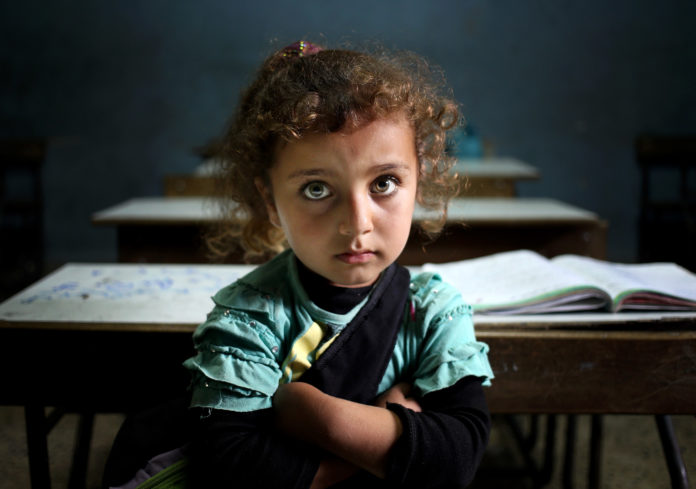


A leading international human rights group warned on Tuesday that more than half of the nearly 500,000 school-age Syrian children registered in Lebanon do not go to school or receive any formal education.
Human Rights Watch said that although Lebanon has allowed Syrian refugee children to enroll for free in public schools, limited resources and residency issues, as well as work restrictions on their parents, are keeping the kids away from school.
The daunting findings by the New York-based group came in a report released Tuesday in Beirut.
According to the report, there are nearly 500,000 Syrian children between the age of three and 18 in Lebanon. Only 158,000 non-Lebanese children, mostly Syrians, are enrolled in public schools and about 87,000 are enrolled in private or semiprivate schools, HRW said.
Since Syria’s conflict began in March 2011, hundreds of thousands of Syrians have fled to Lebanon, which is now home to some 1.1 million registered refugees.
“Despite Lebanon’s progress in enrolling Syrian children, the huge number of children still out of school is an immediate crisis, requiring bold reforms,” said Bassam Khawaja, a Sandler fellow in the children’s rights division at Human Rights Watch.
“Children should not have to sacrifice their education to seek safety from the horrors of war in Syria,” Khawaja said.
In addition to letting Syrian refugee children enroll in public schools even if they don’t have residency permits, Lebanon has also increased school capacity by opening an afternoon shift in 238 schools in the 2015-16 schoolyear.
The Education Ministry announced plans to enroll 200,000 Syrian refugees in formal public education, with international support, as part of the Reaching All Children with Education policy adopted in June 2014, HRW said.
Though during the 2011-2015 period, the number of classroom spaces for Syrian children in Lebanese public schools increased every year, HRW said that in 2015-16, schools were still turning away Syrian children. This was due to the fact that available space was not necessarily located in areas of need, or because children faced other barriers.
Of the 200,000 school spaces that donors committed to funding for Syrian children, almost 50,000 ultimately went unused, the report said.
From Agencies, Feature image courtesy AP

